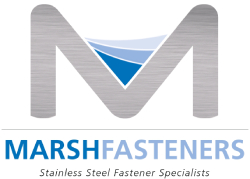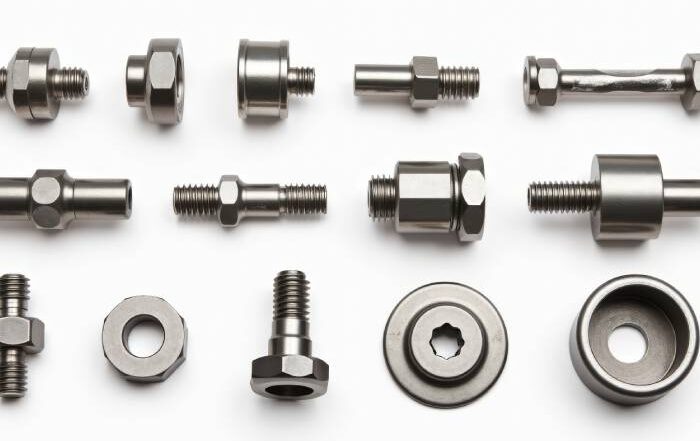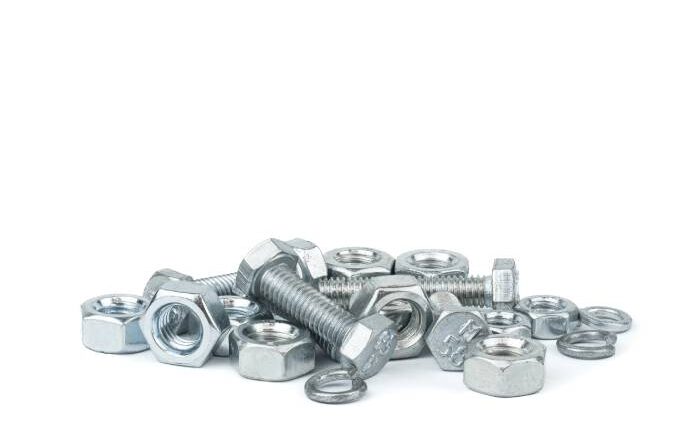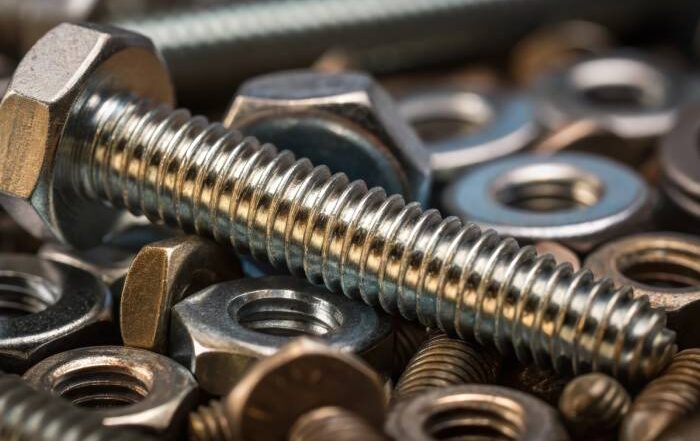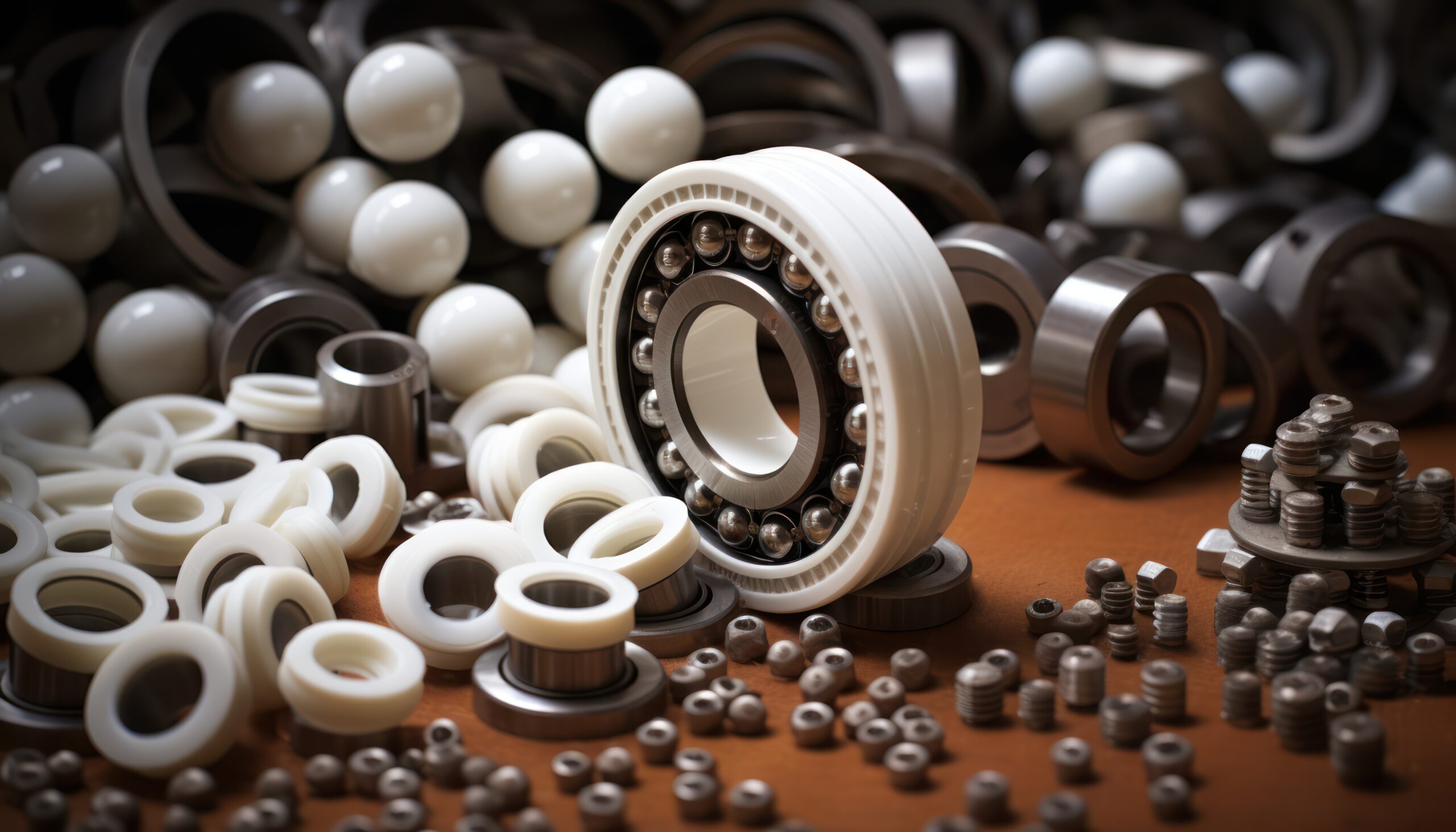
When starting a new Do-It-Yourself project, it is common for beginners to need clarification about choosing the right fasteners. The variety of options can make anyone unsure about what type of fastener should be used for their specific project – whether they need screws or bolts, nails or rivets, and so on. Choosing the suitable fastener is crucial because it affects safety and how long your project will last before needing repairs or replacements. To help with this selection process, we at Marsh Fasteners aim to offer straightforward advice and excellent products that match your requirements perfectly. This blog is intended to assist you in understanding the intricacies of fasteners, allowing you to make educated decisions for your undertakings.
Understanding Fastener Types and Applications
Fasteners are essential things. They keep materials together, and many materials exist for different uses. A simple breakdown of these common fastener types, along with their usual applications, is provided below:
Types of Fasteners:
- Screws: These fasteners are very flexible and can be used to join materials firmly. They have different head forms like flat, round, or Phillips, making them perfect for wood, metal, and plastic use. The threaded design of screws gives them robust holding ability.
- Bolts: Bolts, usually partnered with nuts to create a strong hold, are frequent elements in holding things together. They are often found in building, machine, and car scenarios that require sturdy yet detachable connections.
- Nails: Nails are very common in woodworking and construction tasks. They can be put in fast and work well for keeping wood together, but they don’t hold as firmly as screws or bolts.
- Washers: These tools, known as washers, are used to spread the load of a fastener and stop harm to the surfaces being fastened. They find use with screws and bolts for guaranteeing a firm and even fit.
- Rivets: Rivets are used in many industries, such as metalworking, automotive, and aircraft. They permanently join metal sheets or other materials.
Factors to Consider When Choosing Fasteners
Consider the following factors when selecting fasteners to guarantee your project’s success.
Material of the Fastener:
Fastener’s material impacts its strength, lifespan, and ability to withstand environmental elements. Typical materials are:
- Steel: It is a metal type with solid and long-lasting characteristics. We mainly use it in building structures and machinery because it can handle heavy loads without getting damaged easily. Yet, if steel isn’t coated or treated correctly, it might rust.
- Concrete: It’s a mixture of cement, sand and crushed rocks. When dry, concrete becomes very hard and strong, making it useful for constructing buildings and roads.
- Wood: This is a natural material that comes from trees. Wood has properties like being lightweight but firm enough to be used in building construction.
- Glass: Glass is made from melted sand at high temperatures. Usually transparent or translucent, glass is fragile but can be made stronger by adding other substances to its mix during manufacturing.
- Brick: These are small blocks traditionally made from clay or similar materials that are baked until they become hard. Bricks have been used for centuries in construction due to their durability and fire-resistant properties.
- Stone: Stones are solid pieces typically found in nature’s environment (for example mountains) which we use for making paths or walls among other things, during building processes; stones can come from different kinds of rocks such as limestone or granite, etc.
- Plastic – It originates from an oil refining procedure where hydrocarbons get changed into polymers along with other chemical elements known as additives
- Stainless Steel: Stainless steel is very resistant to corrosion, so it is perfect for places outside, in the sea, and with lots of moisture.
- Brass: It resists corrosion and has a pleasing look. Frequently used in electrical applications and fixtures.
- Aluminum: Aluminum fasteners are lightweight and don’t corrode. They’re used in situations where weight is a concern.
Common Mistakes to Avoid
Common mistakes beginners make when picking fasteners that can affect the outcome and safety of their projects are:
- Using the Wrong Size: Using fasteners that are too short or too long can make the joint less strong. So, always choose the correct size depending on the thickness of your material and what you’re using it for.
- Disregarding material compatibility: Mixing metals, like using steel screws into aluminum, can cause galvanic corrosion. Select fasteners that are produced from compatible substances.
- Disregard for Environmental Factors: If you do not think about the environment where the fastener will be used, it may lead to rusting and breakage. Choose fasteners that have correct corrosion resistance for these situations.
- Misjudging Load Requirements: Selecting fasteners that are not strong enough to bear the load may cause the structure to collapse. Confirm the tensile and shear strength of your chosen fasteners.
Knowing about these usual errors can help prevent them and guarantee the triumph of your project.
Expert Recommendations
Here are a few quick suggestions for joint DIY projects that you can find at Marsh Fasteners:
- Woodworking Projects
Stainless Steel Fasteners: Ideal for outdoor furniture and decks due to their superb anti-corrosion ability and strength.
Shop Stainless Steel Fasteners
- Metalworking Projects
Metric stainless steel machine screws are an excellent choice for joining metal pieces together in a secure, accurate, and corrosion-proof manner.
Shop Metric Stainless Steel Machine Screws
Home Improvement Projects
Screws for Drywall: These are made particularly to hold the drywall in place, giving a dependable grip and a simple setup.
Shop Drywall Screws
Marine and Outdoor Projects
Stainless Steel Bolts: These are great for use in water or severe weather conditions, as they stay strong and do not get rusty.
Shop Stainless Steel Bolts
These products provide reliable and durable solutions for various DIY tasks.
Selecting the correct fasteners is crucial for your project’s prosperity and durability. By grasping the varieties of fasteners, considering elements like material and environment, and steering clear of typical errors, you can confirm that your work is secure and long-lasting. Go to Marsh Fasteners for professional guidance and a broad range of top-notch fasteners. Discover our various products and find the ideal fasteners for your upcoming endeavor. You can learn more or look at our choices in the online store, so please get in touch now.
